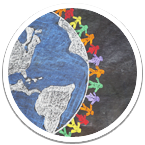Integration

A personalised initial integration service package is offered when moving to Finland
Cooperation between authorities and other actors
The integration process for asylum seekers
A personalised initial integration service package is offered when moving to Finland
In accordance with the Act on the Promotion of Integration, the person’s service needs are assessed in a comprehensive manner. In addition to social and health care services, this also includes Kela and services relating to education, employment, housing, culture, sports, family and youth. Under the Social Welfare Act, an assigned employee is responsible for the client's services. In larger municipalities, refugee services are often organised as centralised services, enabling guidance, counselling and social work to be provided to clients at the same location.
Integration planning takes into account the individual and their language skills, professional competence, educational background and personal goals. In addition, consideration is given to their background, individual situation, special service needs, and any changes taking place to these during the integration process. It is also important to support the person in taking an active approach to their integration.
Early stage integration services must ensure the preparation of initial surveys and integration plans for persons who are not aiming to directly enter the labour market and must also arrange housing, early childhood education and care, preschool education and basic education services, social and health care services, and interpretation services. Some municipalities also offer psychosocial support.
The recommendation is that:
- The assessment is performed using methods that are linguistically and culturally appropriate.
- The assessment aims at so-called shared expertise, which involves both the client and the professional bringing their special competence to the assessment situation.
- The assessment is comprehensive. It focuses attention on both the individuals’ language skills, education and work history as well as their physical, mental, social and cognitive functional ability, coping with the activities of daily living, and environmental factors affecting functional ability.
- The assessment is systematic and leads to the necessary further measures and case management.
The TE Offices are responsible for the work of preparing integration plans and, where necessary, carrying out initial surveys.
Cooperation between authorities and other actors
The transfer to the municipality should take place through cooperation between the reception centre, the municipality and Kela. The task of the reception centre and Kela is to guide clients to apply for the necessary benefits as quickly as possible in order to facilitate and speed up their transition to the municipality.
Once a person as been assigned a municipality of residence or found a residence independently, the reception centre makes contact with the municipality. The patient information system of the reception centres is connected with other information management services (such as Kanta.fi), so the health information must be sent to the municipality by letter.
It should be noted that in a situation where a person moves away within a short timeframe from the municipally to which they were assigned, it may be difficult for them to obtain services. For example, a mental health service initiated during the asylum process may be interrupted by moving to another municipality.
The integration process for asylum seekers
Integration is a long process that begins for asylum seekers already during the asylum application phase. Depending on the individual, integration may even take several years.
A person who has been granted a residence permit may have to wait for months in the reception centre until they are assigned a municipality of residence. Quota refugees wait in the refugee camp until they can enter Finland. A long wait slows down integration and can weaken their mental condition.
The rights of a person who has been granted a residence permit as a municipal resident begins once they have their municipality of residence and social security number recorded at the Local Register Office. Integration services are usually offered for three years. Under the Act on the Integration of Immigrants and Reception of Asylum Seekers, reception phase services may continue even after a person has received a residence permit.
Integration services must support mental well-being
When drawing up the integration plan, attention is paid to the need for mental health support, and a health care professional should participate in the preparation of integration plans that require special support. The person's functional capacity and competence must be assessed in a high-quality manner, and the full range of the person's service needs must be carefully mapped out.
In addition to basic services, immigrant services can arrange special services that support and promote integration:
- measures and services promoting the integration of immigrant children, young people and families
- services comparable to the aftercare provided by child welfare services to unaccompanied minors who came to Finland and have received a residence permit
- support measures for immigrants in need of special measures (e.g. services related to substance abuse, family relations and housing)
- other measures and services, such as social and health care services provided by authorities
Employment services can be provided for more than three years if the integration process is ongoing due to challenges such as mental health issues. In particular, it is often necessary to extend the integration period for seriously traumatised people, as trauma can cause all-encompassing anxiety, a decrease in functional capacity, and difficulties in areas such as learning new information and skills.
Settling into a new country often causes psychological strain
The mental health of those integrating into Finnish society is primarily affected by the same factors as the mental health of the population at large. In addition to these, integration often involves formidable challenges for refugees.
The integration process involves a wide range of conflicting psychological processes, such as different emotions ranging from gratitude and calm to homesickness and fear. Integration requires change and adaptation to the new situation both from the person who has moved to the new country and from the community and society that is receiving them.
Adaptation to a new country can be described as a process that involves three stages:
- During the arrival phase, the external conditions of the person’s life change: home, friends, surroundings and language. This can create feelings of fear, unfamiliarity, confusion and helplessness.
- During the engagement phase, the conditions of the new country are observed and compared with the home country.
- Then, in the hindsight phase, people are able to combine the features of the new and old culture in a form that is suitable for them.
Furthermore, the groups in the country of origin and host society who have received the person at different stages each have their own significance. Good interpersonal relationships and social skills protect immigrants and refugees from mental health problems.
Mental health problems make integration more difficult
It is possible that the person seems to be doing well during the asylum process, but the consequences of migration, such as loneliness and the abandonment of the idea of returning to one's country of origin, may later lead to psychological symptoms.
Adaptation may also be difficult if the events in the former home country and any family left there are continually in the person’s mind. In addition, learning the skills needed in the new country may cause stress.
Finding and mobilising balance and resources, obtaining appropriate support and services, and dealing with crises strengthen mental health during integration. Employment often improves the immigrant's quality of life both economically and socially.
It is hoped that, in the future, the language training provided under the Integration Act will better serve the integration of psychologically symptomatic people. Language is the key to integration, education, working life, communication, values and customs. Inadequate language proficiency is a significant obstacle to employment, and language proficiency requirements in working life may also indirectly enable discrimination.
The arranging of integration training and social orientation sessions in one's own language has been found to be a good operating method. It enables a better understanding of the way things work in Finland.
The mental condition of the person must be taken into account when deciding the form of housing
People with a refugee background may find living alone difficult if they do not have social contacts to connect with. It is also important to note that young adults without their own family are still learning to manage in everyday life, so it may feel heavy to take care of money, cooking and household chores on their own.
Successful housing solutions reduce the experience of loneliness, enable social interaction and provide security.




